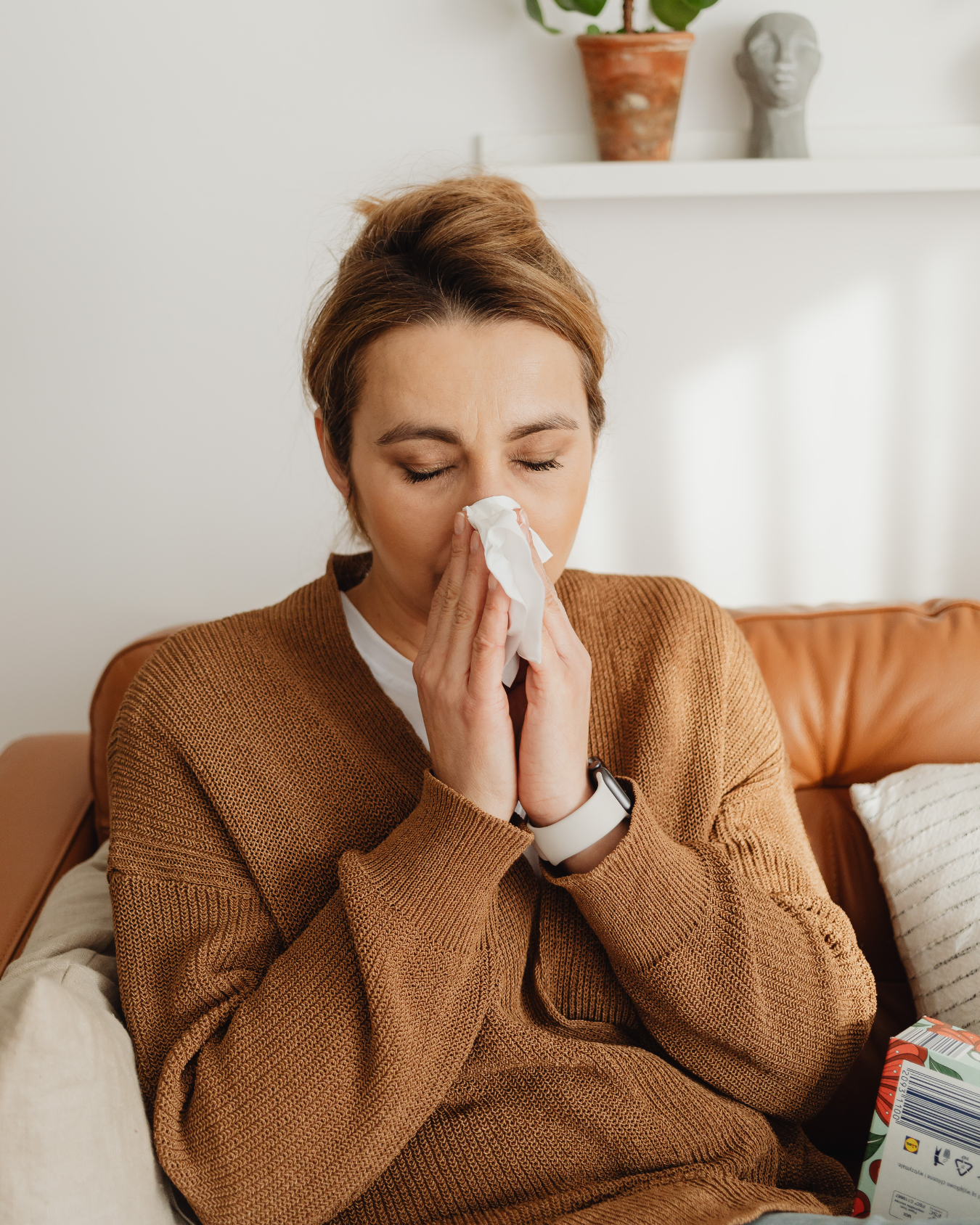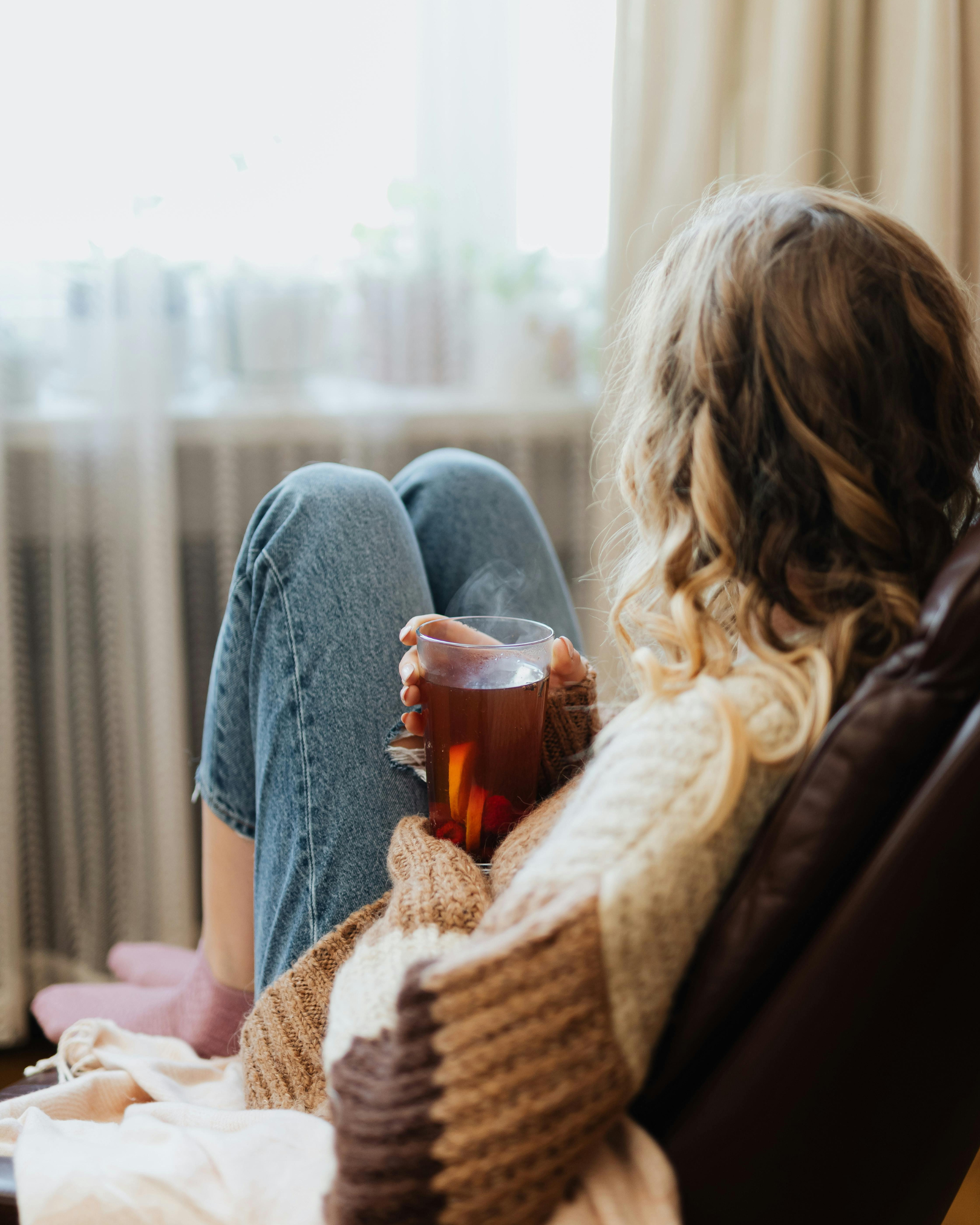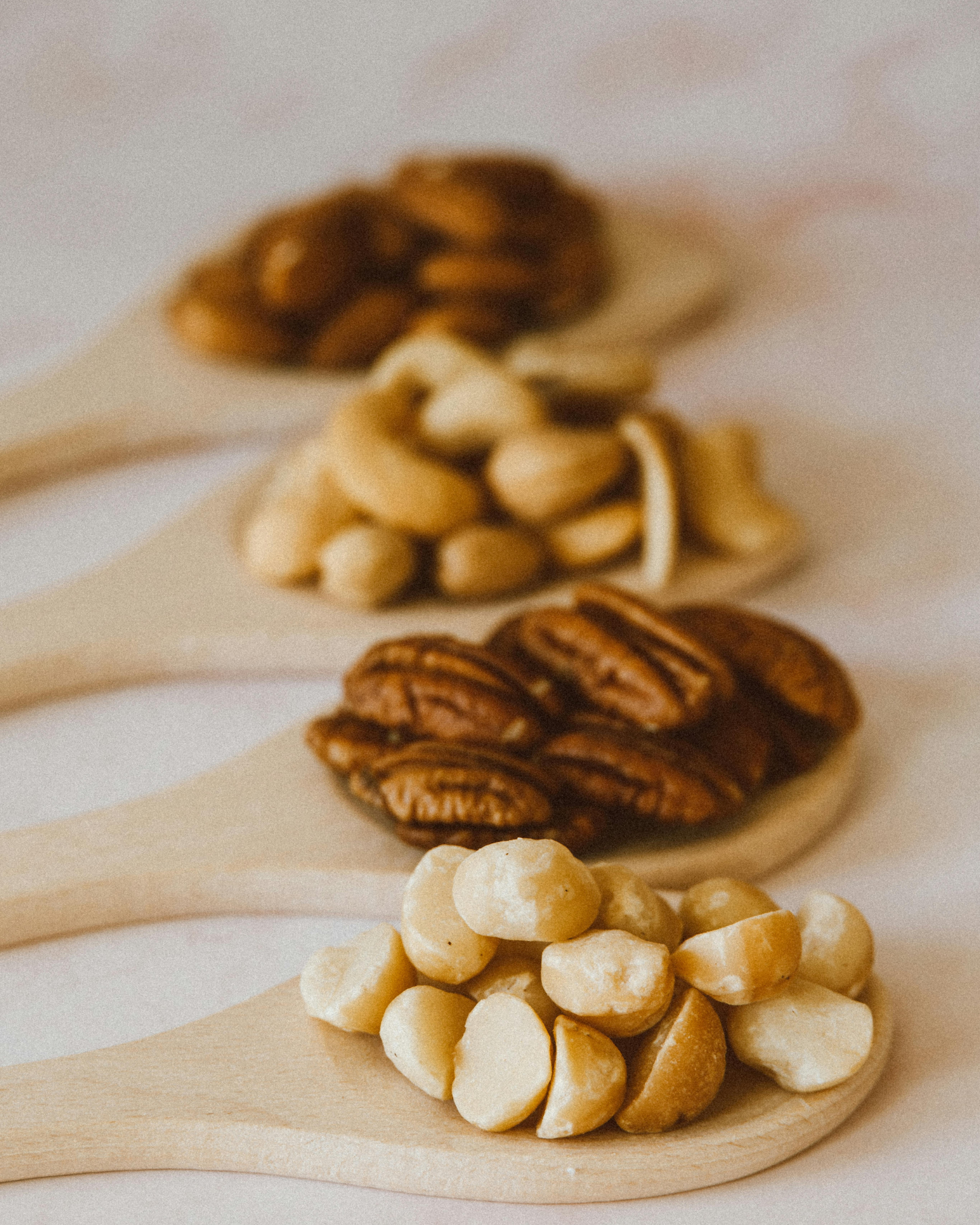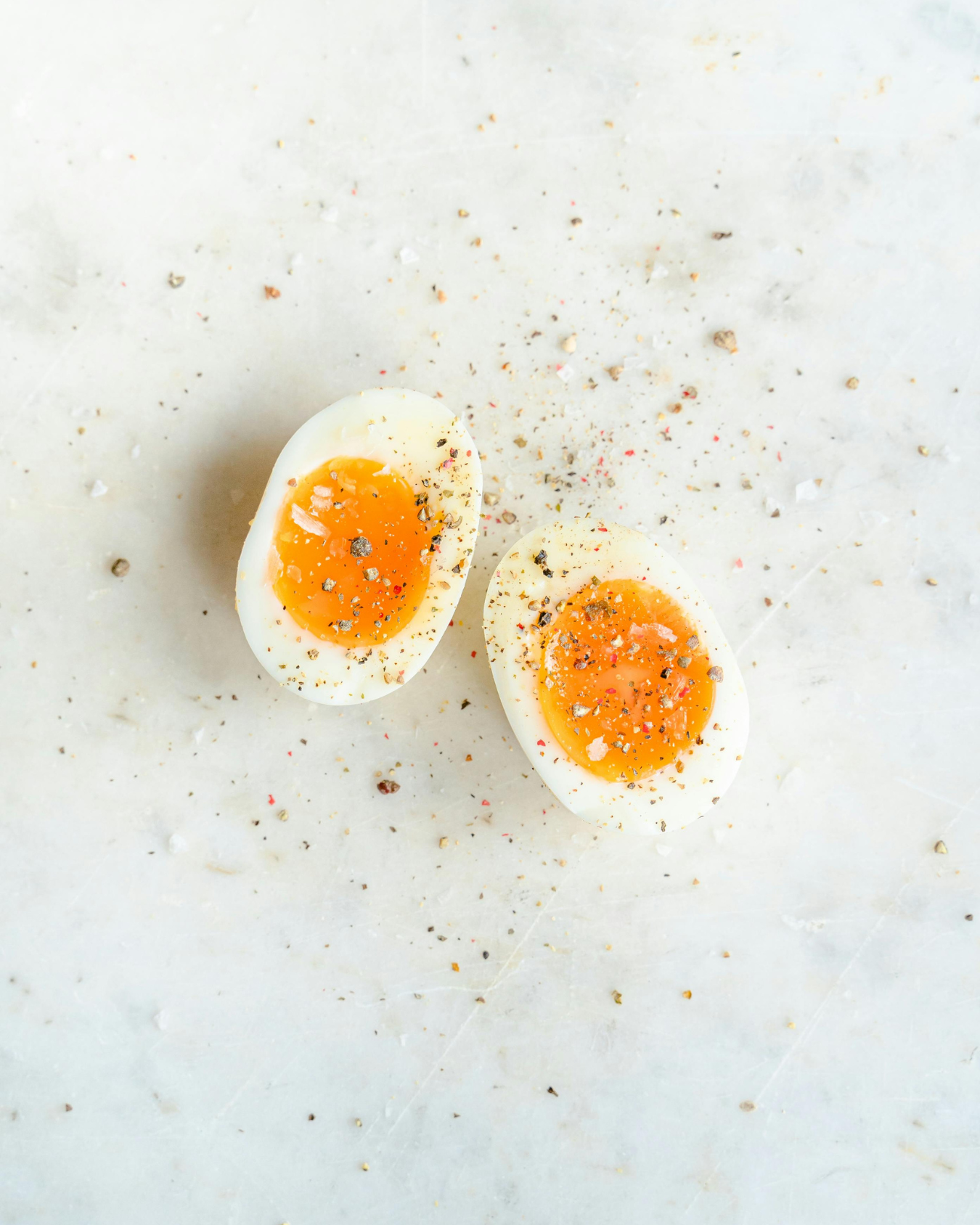Reading time: 7 minutes
Did you know that women experience bloating more often than men? This is all due to anatomical differences: a longer intestinal tract and a deeper pelvis create a rollercoaster-like structure, rather than a smooth U-shape. This often makes the digestive process more challenging. But rest assured, bloating after a large meal isn't something you have to endure. There are solutions, including effective supplements, natural remedies, and smart eating habits. We're here to support you with scientific insights and products that truly work.
What is bloating?
Bloating occurs when your abdomen feels filled with gas or air that doesn't escape easily. It's not the same as distention, although they're often confused.
Symptoms of bloating:
- A feeling of pressure or fullness in your abdomen.
- An unpleasant tension, sometimes accompanied by mild pain.
- No visible swelling, but a heavy and full feeling.
Symptoms of a bloated abdomen:
- Visible distention of the abdomen, often worsening during the day.
- A feeling like there is a balloon in your stomach.
While it's annoying, bloating is usually harmless and you can quickly find relief with a few adjustments. Supplements can play a valuable role in this, such as Digestion Complex .
Natural remedies for bloating
Besides supplements, there are several natural strategies that can help. Here are some effective tips:
- Chew slowly and thoroughly : Bloating often starts with how we eat. Eating too quickly can cause you to swallow air, which worsens gas buildup in the intestines. Chewing is important not only to break down your food but also to mix it thoroughly with saliva. This is important because digestion begins in the mouth. By chewing each bite (at least 15 times) about 30 times, you help your stomach and intestines work more efficiently, which reduces gas and bloating.
- Drink plenty of water, but smart : Adequate hydration is key to healthy digestion, but the timing of your fluid intake is important. Avoid drinking while eating, as this dilutes the concentration of your stomach acid, which is important for breaking down food. Therefore, wait at least 30 minutes after your meal before drinking a glass of water.
- Avoid gas-producing foods : Some foods are known to increase gas production in your gut. These include beans, lentils, Brussels sprouts, cauliflower, carbonated drinks, and even eggs. If you're prone to bloating, try avoiding these foods temporarily or eating them in smaller quantities. Also, be mindful of processed foods with artificial sweeteners, as these are often difficult to digest and can cause additional gas.
- Eat fennel seeds for instant relief : Fennel seeds have been used for centuries to soothe digestive problems. Chew a teaspoon of fennel seeds after a meal or make a tea from them. Fennel contains compounds that relax the muscles in the digestive tract, which reduces cramping and gas. If fennel isn't your favorite, you can also choose herbs like ginger or mint, which offer similar benefits. Or take Digestion Complex before meals.
- Add artichoke to your meals: Artichoke is a powerful ingredient for stimulating bile production, which is essential for digesting fats. Poor bile production can lead to bloating, especially after fatty meals.
- Drink bone broth : Bone broth is a nutritious drink that not only soothes your gut but also helps repair the intestinal lining. A healthy gut lining is crucial for preventing gas. Bone broth contains amino acids like glycine and proline, which support gut health and reduce bloating. Enjoy a cup of warm bone broth with your meal or as a snack.
- Avoid processed meat from the supermarket: Processed meat, such as sausages and bacon, often contains large amounts of salt and unhealthy fats. This can not only cause water retention but also encourage the growth of harmful gut bacteria, leading to bloating. Instead, always choose grass-fed, organic meat. Available from: Grutto and Zorgnatuur.
- Cook your food instead of eating it raw : While raw fruits and vegetables are often healthy, they can sometimes be difficult to digest. Fiber-rich vegetables like broccoli or kale, in particular, can cause bloating if they're not cooked. Gently steaming or boiling vegetables breaks down some of the fiber, making them easier for your intestines to process.
- Eat more fermented foods : Fermented foods like kimchi, sauerkraut, and kefir are packed with beneficial bacteria. These probiotics support your gut flora and reduce gas. Healthy gut flora is important not only for your digestion but also for your mental health.
- Reduce stress : Stress directly impacts your digestion and can worsen bloating. Excessive stress increases cortisol production, which throws your gut flora out of balance. Try relaxation techniques like yoga, meditation, or breathing exercises to calm your stomach and improve your digestion. So don't eat stressed out.
Example product
Our Digestion Complex is specially formulated to support your digestion and reduce discomfort like bloating after a heavy meal. This supplement contains a carefully formulated blend of herbs and plant extracts that work synergistically to keep your digestion running smoothly.
Key ingredients and their benefits:
- Licorice (Glycyrrhiza glabra): Supports stomach function and helps with normal digestion.
- Nettle (Urtica dioica): Helps soothe the stomach and supports overall digestion.
- Ginger (Zingiber officinale): Promotes the breakdown of food and reduces gas formation.
- Fennel (Foeniculum vulgare): Reduces gas and relaxes the muscles around the digestive tract.
- Peppermint (Mentha piperita): Helps with abdominal cramps and promotes calm digestion.
Dosage: Take two capsules daily with a meal, especially when you know you're about to eat a heavy meal. Perfect during holidays, vacations, or when you enjoy culinary delights a little more.
Additional tips for healthy digestion
Bloating can't always be prevented, but with these simple tips you can significantly reduce the risk:
- Eat regularly: By sticking to regular times, your digestion will get into a routine.
- Get enough exercise: This stimulates your intestines and prevents gas from building up.
- Avoid stress: Stress affects your gut health and can contribute to bloating. Yoga and meditation can help calm your gut.
- Keep a food diary: This way you can discover which foods trigger your complaints.
Finally
Feeling bloated after a large meal can be annoying, but with the right approach—from smart eating habits to natural supplements like Digestion Complex— you can quickly experience relief.
By combining small lifestyle changes with high-quality support, you give your digestion the care it deserves.
Are you experiencing bloating? Try the Digestion Complex and discover the difference!

Get the most out of your health!
Ready for advice that truly makes a difference? Book a phone or online consultation and receive personalized advice from one of our orthomolecular therapists. Together, we'll work towards your optimal health!
FAQs
What causes bloating after eating a large meal?
Bloating can be caused by swallowing air while eating, consuming gas-producing foods, or slow digestion. It can also be caused by food intolerances such as gluten or dairy.
Which supplements help with bloating?
Supplements like Digestion Complex , with ingredients like ginger, fennel and peppermint, support digestion and reduce gas after a large meal
Can supplements prevent bloating altogether?
Supplements can certainly help, but they work best when combined with healthy eating habits, such as chewing slowly, drinking plenty of water, and avoiding gas-forming foods.
What is the difference between bloating and distention?
Bloating is a feeling of fullness and tension in the abdomen without visible swelling. A distended abdomen is physically visible and often increases in size throughout the day.
Is bloating after a large meal always harmless?
Bloating is usually harmless and caused by food or eating habits. If you experience persistent symptoms or pain, it's wise to consult a doctor or therapist.













